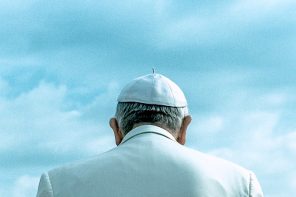Pope Francis finally dropped the long-expected axe on Cardinal Raymond Burke, one of the curia’s cultural warriors-in-chief, on Saturday. Burke was removed from the powerful position of head of the Apostolic Signature, the Vatican’s Supreme Court, and relegated to the largely ceremonial role of patron of the Sovereign Order of Malta, a Vatican charity, effectively ending his career.
It’s the second time Francis has demoted Burke from a key role at the Vatican; last year he removed him from the Congregation for Bishops, which makes recommendations about which priests should begin their climb up the ladder of the Vatican hierarchy by becoming bishops.
While the move had been expected for some time, it was still significant in that Burke has emerged as the most outspoken critic of Francis’ agenda. During the recent family synod he was openly critical of Francis surrogate Cardinal Walter Kasper’s reform proposals for communion for the remarried and afterward suggested that the church under Francis was like a “ship without a rudder.”
The conservative Catholic blog Rorate Caeli called Burke’s pending removal some ten years before the mandatory retirement age of 75 unprecedented and “the greatest humiliation of a Curial Cardinal in living memory … a complete degradation and a clear punishment.”
Punishment or not, Burke’s demotion means that one of the leading conservatives in the United States no longer has a platform and is unlikely to be invited to participate in future high-level discussions about church doctrine. Burke is best known for saying that communion should be denied to John Kerry and other pro-choice Catholic politicians during the 2004 elections, a move that many bishops felt debased the sacrament of Holy Communion by turning it into a political weapon. By removing Burke, Francis appears to be signaling a preference for bishops who worry less about politics and more about the pastoral care of their flock.
Conservatives within the church are reacting with horror that Francis should exercise his papal authority to remake the curia more in his image, much as his predecessors John Paul II and Benedict did. (It was Benedict, née Ratzinger, after all, of the smaller and purer church, who appointed Burke to the high court in a clear signal of his preference for doctrinal purity and rigidity.)
Combined with a number of other lower-level curial promotions and demotions—including the firing of a bishop accused of protecting a priest suspected of sexually abusing a child—conservatives are complaining of the de-Ratzingerization of the Vatican (which does sound an awful lot like the fumigation the Vatican obviously requires) and throwing around words like “purge” and making not-so-subtle comparisons to Stalin.
The blowback forced Francis to take the also largely unprecedented step of releasing a Vatican edict codifying the pope’s authority to fire bishops as he sees fit.
It’s funny how conservatives everywhere suddenly get all un-deferential to formerly revered, and unquestioned, sources of authority as soon as their agenda is out of favor.




